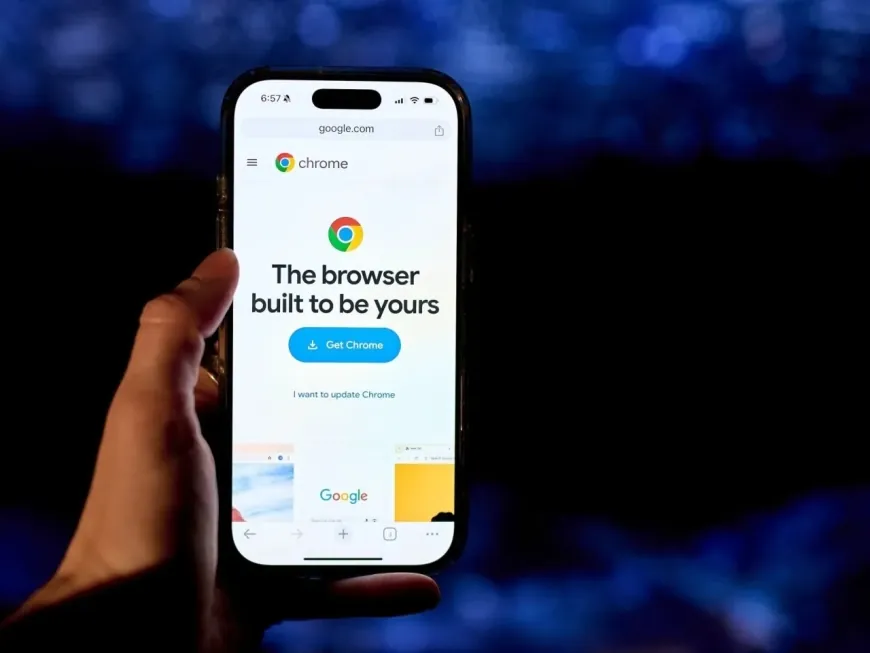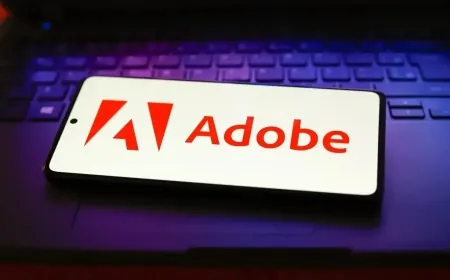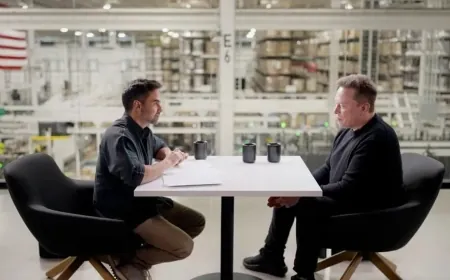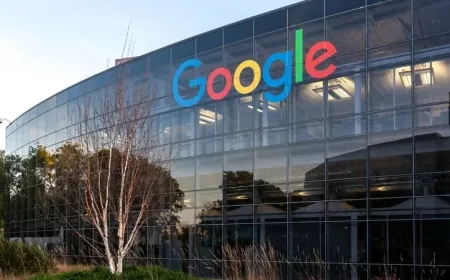Google Could Be Forced to Sell Chrome Browser Following DOJ Antitrust Review
DOJ antitrust review may force Google to sell Chrome browser. Search. com, Perplexity, and Yahoo have expressed interest in acquiring it.

When Google introduced Chrome in September 2008, the browser market was already crowded. Microsoft’s Internet Explorer dominated Windows PCs, while Mozilla’s Firefox had captured a growing share of users fed up with Microsoft’s aging product. Apple’s Safari served Mac and iPhone users, and Opera had a small but loyal following.
Chrome entered quietly, marketed as a faster, cleaner alternative built on WebKit, the rendering engine used by Safari. Google emphasized speed and simplicity: pages loaded faster, tabs were isolated so one crash wouldn’t take down the entire browser, and the minimalist “omnibox” combined search and address input.
The strategy worked. Within four years, Chrome surpassed Internet Explorer and Firefox, becoming the world’s most popular browser. Google then bundled it with Android, preinstalling it on billions of smartphones. This cemented Chrome as the default gateway to the web for most people, giving Google an unrivaled channel to funnel traffic toward its search engine and advertising business.
Today, Chrome commands around 63% of the global browser market, according to StatCounter. It runs on every major operating system, and through Chromium—its open-source foundation—also powers Microsoft Edge, Brave, Opera, and several niche browsers. More than three billion users rely on it daily.
Why Regulators Are Targeting Chrome
The Justice Department (DOJ) has long scrutinized Google’s dominance. In late 2023, a U.S. court found Google guilty of illegally maintaining a monopoly in search by locking up distribution deals with Apple, Mozilla, and device makers. In April 2024, another ruling concluded that Google monopolized parts of the open-web digital advertising market, stifling competition.
Regulators argue Chrome plays a critical role in reinforcing these monopolies. By controlling the browser, Google can:
-
Set Google Search as the default, steering traffic to its ads business.
-
Collect data on browsing habits, strengthening its targeted advertising.
-
Use browser features to roll out new ad technologies (such as the controversial Privacy Sandbox).
The DOJ claims fines alone won’t solve the problem. Instead, it is asking a federal judge to force Google to divest Chrome entirely—a drastic remedy rarely seen in modern antitrust cases. Regulators point to Microsoft’s bundling of Internet Explorer in the 1990s as a precedent, though the courts then stopped short of a breakup.
“Chrome is not just a browser; it is the distribution arm of Google’s search empire,” a former FTC official told me. “If regulators want to weaken the stranglehold, breaking that chain is the only real lever.”
How Chrome Powers Google’s Search, Advertising, and Innovation
For Google, Chrome is more than a piece of software—it is a linchpin of its business.
-
Search Default Power: When users open Chrome, the default search engine is Google. Most never change it, which ensures billions of queries flow through Google daily.
-
Advertising Revenue: Alphabet, Google’s parent company, generates around 80% of its revenue from ads. Chrome ensures that pipeline remains strong.
-
User Data: Chrome allows Google to gather insights into browsing patterns, page performance, and user engagement—data that feeds its ad products.
-
Innovation Platform: Chrome is often the testing ground for new technologies like PWAs (progressive web apps), performance APIs, and advertising frameworks.
Investment bank Barclays has warned that losing Chrome could wipe 15–25% off Alphabet’s market capitalization. For a company valued at nearly $2 trillion, that represents hundreds of billions in lost value.
Google Warns Chrome Sale Could Risk Security and Ecosystem
Google insists it is not a monopoly and that selling Chrome would be disastrous.
In a blog post published in May 2024, the company argued:
-
Security risks: Chrome receives updates every few weeks, patching vulnerabilities that hackers could exploit. A divestiture could slow this process, leaving billions exposed.
-
Open-source dependency: Chromium underpins not just Chrome but also Microsoft Edge and other browsers. Splitting it away could disrupt the entire ecosystem.
-
Competition exists: Safari dominates iOS devices, Edge is gaining traction on Windows, and Firefox continues to serve privacy-conscious users.
“Breaking up Chrome would not help consumers,” the blog stated. “It would fragment the web, harm innovation, and create new cybersecurity risks.”
Privately, Google executives have warned investors that a forced sale could diminish Chrome’s global reach, potentially turning it into a less relevant product over time.
Who Is Bidding to Acquire Google Chrome Browser
Even before the court has ruled, potential buyers are circling. The prospect of acquiring the world’s most-used browser has sparked interest from established tech players, AI startups, and private equity groups.
Search.com – $35 Billion Offer
Search.com, an AI-powered search platform, confirmed it submitted a $35 billion bid for Chrome. Backed by JP Morgan and private equity investors, the company argues it can expand Chrome’s reach while rethinking search through AI chat tools.
Melissa Anderson, president of Search.com’s parent company Public Good, said: “Chrome is the fastest way to scale user adoption globally. Pairing it with AI-driven search could make knowledge more accessible for everyone.”
Perplexity – $34.5 Billion Offer
Perplexity, a fast-growing AI search startup, has offered $34.5 billion. The company recently launched Comet, an AI-native browser, and sees Chrome as a chance to leapfrog rivals. Investors have pledged to back the deal despite the bid exceeding Perplexity’s valuation.
Perplexity says it would maintain Chromium as open source and keep Google as the default search engine, though users could change it.
OpenAI – Considering a Bid
OpenAI has not made a formal offer but has signaled interest. CEO Sam Altman told reporters: “If Chrome is really going to sell, we should take a look at it.”
For OpenAI, Chrome could provide distribution for ChatGPT and other AI services, counterbalancing Google’s dominance. Given Microsoft’s 49% stake in OpenAI, a partnership could emerge, though it would likely face intense regulatory scrutiny.
Yahoo and Apollo
Yahoo, owned by Apollo Global Management, has also shown interest. Brian Provost, general manager of Yahoo Search, called Chrome “the most important strategic player on the web” during April’s hearings. Acquiring Chrome could help Yahoo regain relevance in a market it once led.
Past Antitrust Cases and Their Impact on Tech
If Google is forced to sell Chrome, it would echo earlier antitrust battles.
-
Microsoft (2001): The government accused Microsoft of using Windows to force Internet Explorer on users. The company avoided a breakup but agreed to restrictions. That case opened the door for Firefox and, eventually, Chrome to thrive.
-
AT&T (1980s): The telecom giant was broken up into regional “Baby Bells,” spurring innovation in communications and lowering consumer costs.
-
Standard Oil (1911): One of the earliest examples, where forced breakup created lasting competition in the oil industry.
Unlike these cases, Chrome is software, not hardware or infrastructure. Regulators would face the challenge of ensuring the transfer doesn’t harm users or the broader web ecosystem.
EU, India, Australia, and South Korea Monitor Google Chrome Case
The U.S. is not acting in isolation. Regulators worldwide are paying close attention:
-
European Union: Under the Digital Markets Act, the EU can demand similar remedies against “gatekeeper” platforms. If Chrome is sold in the U.S., Europe may require equivalent steps.
-
India: The Competition Commission of India has already fined Google for bundling practices on Android. Chrome is central to that inquiry.
-
Australia and South Korea: Both have active digital competition investigations that could be influenced by the U.S. outcome.
If Chrome changes hands, global regulators will want guarantees that user data remains protected across borders.
Impact on Users’ Browsing, Privacy, and Updates
For the three billion people who use Chrome, a sale could have tangible effects:
-
Default Search: A new owner might switch the default from Google to Bing, Yahoo, or a new AI engine.
-
Privacy: Depending on the buyer, data collection practices could change—either more aggressive targeting or stronger privacy protections.
-
Updates: Users could face slower security patches if ownership transition causes disruption.
-
Innovation: Some fear a new owner might prioritize short-term profit over long-term browser development.
Consumer advocates argue a sale could bring benefits if it reduces Google’s data dominance. “Users deserve a browser that isn’t tied to one advertising model,” said John Bergmayer of Public Knowledge, a digital rights group.
Planned Actions and Timeline for Chrome Divestiture
The federal judge overseeing the case is expected to rule by the end of this month. There are three possible outcomes:
-
Chrome must be divested – triggering a high-stakes sale process likely to involve multiple bidders and international regulators.
-
Restrictions without divestiture – such as requiring Google to offer users choice screens for search engines and ad systems.
-
Google wins – no divestiture, but ongoing appeals and global regulatory pressure would remain.
Whatever the outcome, the case will set a precedent. Forcing the sale of a consumer software product used daily by billions would be unprecedented in the tech industry.
Chrome’s Future and the Antitrust Stakes
Chrome started as a small browser but grew into the gateway most of the world uses to access the internet. Its success has now placed it at the center of a major antitrust case with global attention.
If regulators force a sale, Chrome could become the most valuable technology ever separated from a Big Tech company. If the case fails, Google’s control over the browser and search ecosystem could strengthen further. The coming weeks will decide not only who controls Chrome but also the future openness of the web for users worldwide.
Also Read: Perplexity Makes $34.5B Offer to Buy Google Chrome
































































